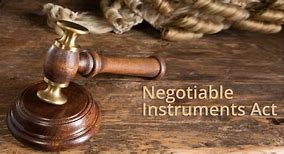
Negotiable Instrument Act – Cheque bounce / Dishonour case for beginners!!
Did your cheque bounced / dishonoured on presentation to your bank?
Then this article is for you. !!
If you have received the cheque by Opposite Party in discharge of his legal liability and the said cheque was dishonoured when you presented to your bank for clearance, then such dishonour attracts prosecution u/s 138 of Negotiable Instrument Act against the Opposite Party.
What will you get if you initiate the criminal proceedings u/s 138 of Negotiable Instrument Act against the Opposite Party?
- Sent Opposite Party to rigorous imprisonment for period of 2 years and
- Get double the cheque amount towards compensation u/s 357 Cr.P.C.
- Also initiate parallel Civil Recovery Suit for money recovery along with past and future interest which runs independent of criminal case u/s 138 of Negotiable Instrument Act.
Thus you have chances to recovery more than 3 times of original amount from Opposite Party incase of cheque bounce.
The criminal case initiated under section 138 of Negotiable Instrument Act, is compoundable (mean you can withdraw the case proceedings if Opposite Party compromises with you as per the agreed conditions)
Vocabulary:
1. Drawer: Opposite Party who writes and signs the cheque.
2. Payee: Name is mentioned on the cheque.
3. Holder: Person having the custody of the cheque in due course.
4. Drawee Bank: The bank whose address is mentioned in the cheque.
5. Payee’s Bank: Where the cheque was deposited for clearance.
Mandatory Ingredients to attract prosecution of Opposite Party u/s 138 of Negotiable Instrument:
- The cheque should be drawn by Opposite Party in discharge of legally enforceable liability. Dishonour of cheques given in friendship, giving loan, charity, donation etc does not attract prosecution of the Opposite Party under section 138 of Negotiable Instrument Act as cheque issued are not toward discharge of any legally enforceable liability.
- Presentation of cheque to the bank: The holder of the cheque should present the cheque to his / her bank for clearance within 3 months of the date mentioned on the drawn cheque.
- Returning the cheque unpaid by the drawee bank: The cheque should be returned to the payee / holder unpaid along with dishonour memo stating the reason for dishonour. Reason could be insufficient funds, account frozen, account closed, signature not tallied etc.
- Giving written legal notice in writing to the drawer / Opposite Party of the cheque demanding payment of the cheque within 30 days of intimation by bank. This notice has to be sent to the Opposite / Defaulting Party within 30 days from date on which the information is received by payee / victim from the bank along with the dishonour memo.
- Failure of the drawer / Opposite Party to make payment within 15 days of the receipt of the notice by Opposite Party
If you don’t get your money with in 15 days from date of receipt of the notice by Opposite Party / return of notice, then you have limitation of 30 days from expiry of 15 days from date of receipt of notice by opposite party (in case of successfull service) or 30 days from return of notice (incase of un-successfull service if sent on correct address) to file Complaint case u/s 138 of Negotiable Instrument Act failing which the proceeding will be rendered invalid
We at www.legalfactotum.com can help you in: - Drafting and sending mandatory legal notice required u/s 138(b) of Negotiable Instrument Act to the Opposite Party demanding the cheque payment (All India help).
- Draft your complaint u/s 138 of Negotiable Instrument Act (All India help).
- File your complaint u/s 138 of Negotiable Instrument Act at all District Courts in India.
Regards,
A. S. Babbar & Co.
Advocates & Solicitors
B-1, G. T. Karnal Road, Ind. Area, Delhi
Ph.: 01149848489, 9911200009